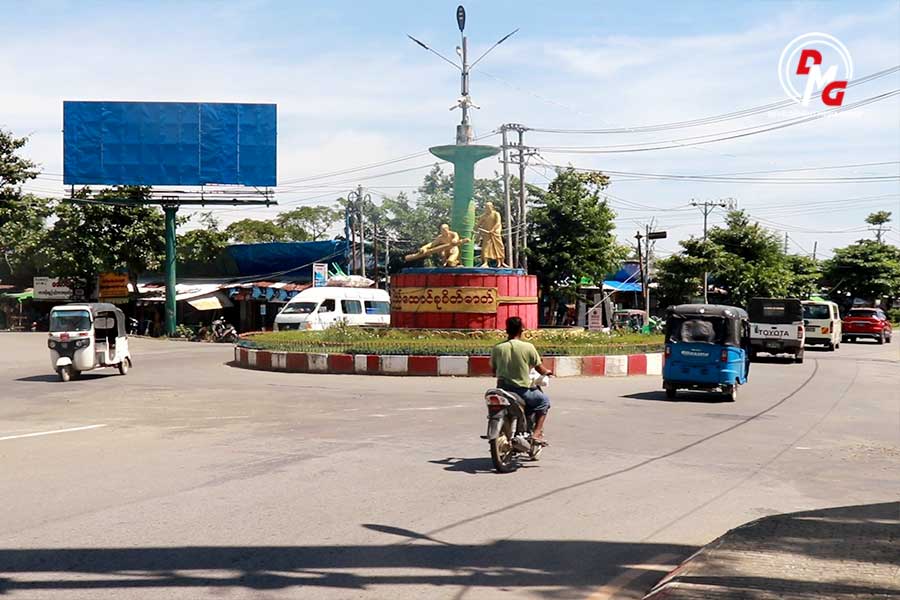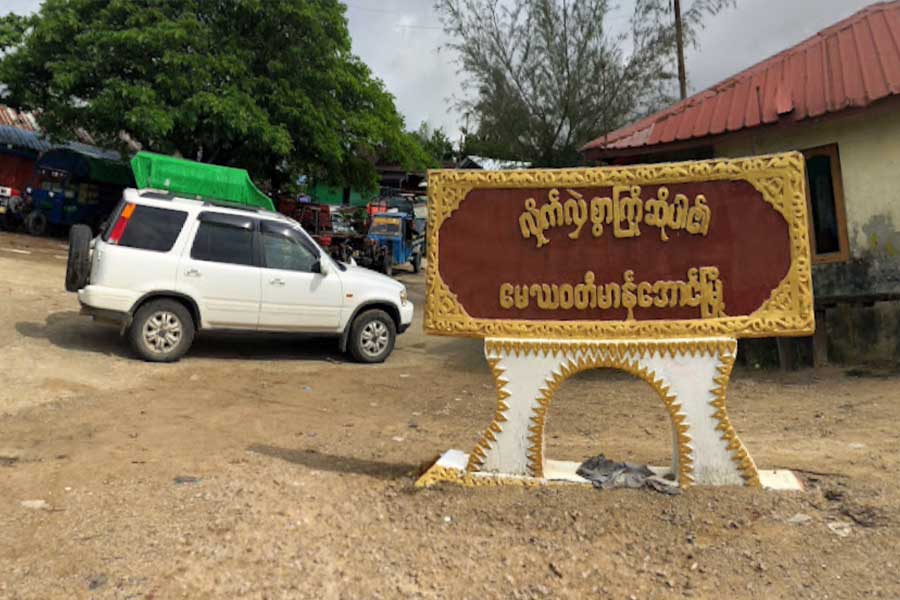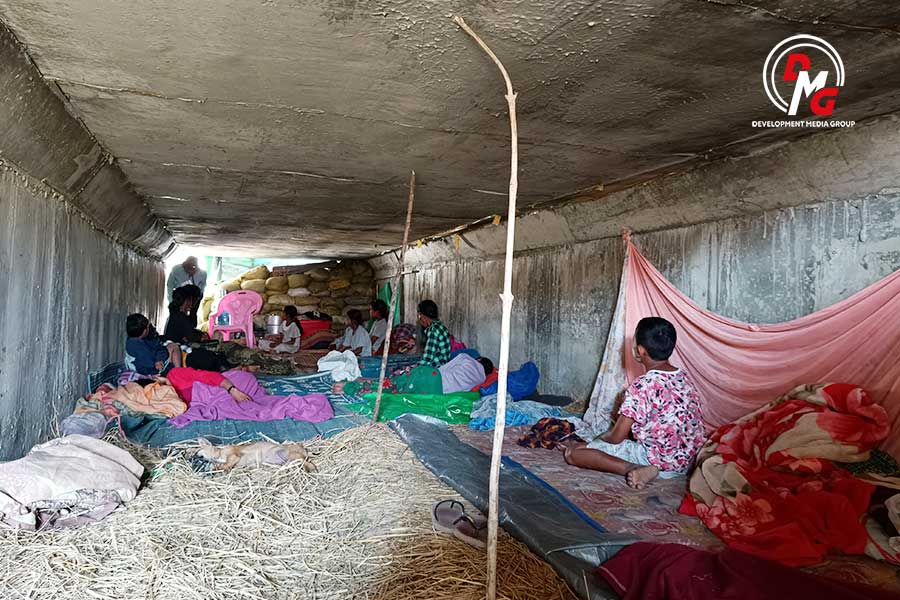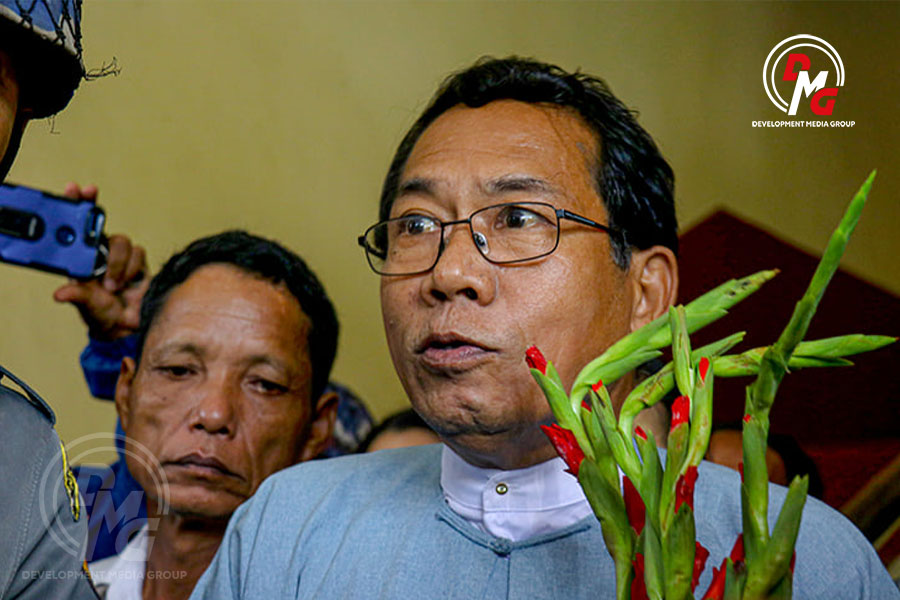Chin State’s Paletwa Twsp residents face road and waterway blockades
Residents of Paletwa Township, Chin State, say they are facing travel troubles due to blockades of land routes and waterways in the area amid conflict and COVID-19.
01 Oct 2020
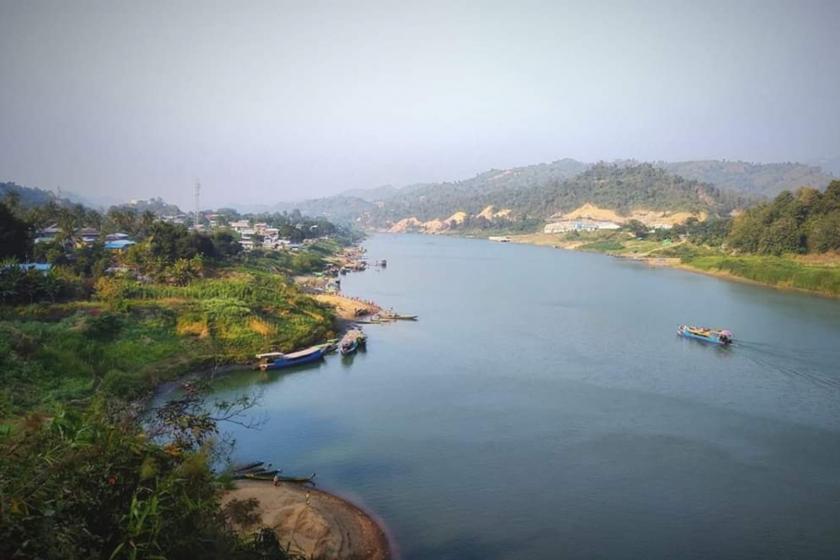
Nyan Hein | DMG
1 October 2020, Sittwe
Residents of Paletwa Township, Chin State, say they are facing travel troubles due to blockades of land routes and waterways in the area amid conflict and COVID-19.
As a consequence of the blockages, daily life has been made more difficult and livelihoods are in danger, according to locals. Social welfare organisations have not been able to render assistance in time, said Paletwa resident U Kyaw Aung.
“There are some sections along the Kaladan River that the Arakan Army has taken control of and there are also some areas where the Tatmadaw has deployed its troops,” he said. “So, inspections are made by the AA when we encounter them. The Tatmadaw also makes similar inspections and asks us to do things. So, the areas and routes are difficult to travel.”
Due to the effect of the restrictions on supply lines, basic commodity prices have risen.
“In our areas, there are Tatmadaw blockages. Kha La Ya [Battalion] 289 has built a gate in the places where the bridge has been built over the Kaladan River,” Paletwa resident Ko Tin Tun Aung said.
On September 30, the Arakan Army announced that the Myanmar military had strictly blockaded both land routes and waterways in the area using soldiers based in Paletwa, battalions based elsewhere in Chin State, and three other divisions (Nos. 11, 55 and 77).
The Arakan Army also accused the Tatmadaw of collecting between K50,000 and K200,000 for each commodity truck and motorboat passing its checkpoints.
Major-General Zaw Min Tun of the Tatmadaw True News Information Team did not answer DMG phone calls seeking to enquire about the AA’s claims.
Chin State Development Affairs Minister U Soe Htet said the Tatmadaw had blocked local waterways for security reasons.
The minister told DMG that food supply deliveries were relying mainly on land routes.




